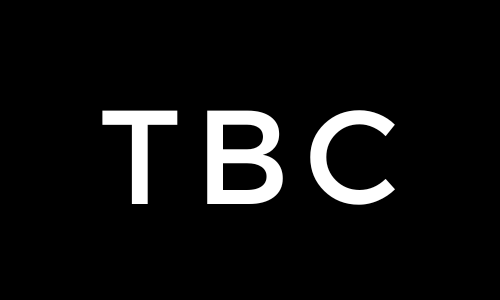When it comes to building wealth, both blogging and stock market investing offer unique paths. However, blogging provides tangible control, flexibility, and the potential for steady, diversified income that often feels more accessible to those who prefer to manage their destiny. Let’s look at why blogging might be a wiser choice for many individuals looking to generate income.
NOTE: The information in this post is not financial advice, and I am not a financial advisor. If you have any questions, please consult with your financial advisor or team.
What is investing, and how do you invest in the stock market?
Investing is putting your money into assets like stocks, bonds, or real estate to grow your wealth over time. The idea is to make your money work for you by earning returns, which can be through increases in value or income, such as dividends.
To invest in the stock market, you start by opening an account with a brokerage. After adding money to this account, you can buy shares of companies you believe will grow in value. Researching companies helps you make informed decisions—many people look at factors like financial health, industry trends, and market conditions.
Once you’ve chosen a stock, you place an order to buy it through your brokerage, which can usually be done online. After buying, you can hold onto the stock and monitor its performance over time, adjusting your strategy based on your goals and the market’s changes.
1. More Control and Predictability

Blogging allows you to control nearly every aspect of your financial growth. Unlike the stock market—where you depend on external factors like company performance, economic shifts, or market sentiment—blogging gives you direct control over your content, strategy, and brand direction.
Example: You can write about trending topics, improve your SEO, or diversify your income sources through affiliate marketing, ad placements, or sponsored content. In these areas, your input directly impacts your results, giving blogging an edge in predictability over stock investments.
2. Lower Initial Investment with High Potential Returns

Starting a blog requires minimal initial investment, unlike the stock market, where even a small portfolio can require a significant upfront cost to diversify.
Cost Breakdown:
- Domain name and hosting: ~$50–$100 per year.
- Marketing tools (optional): Email marketing or SEO tools costs can be low or even free in the early stages.
With dedication, many bloggers make hundreds to thousands of dollars per month without requiring the tens of thousands typically needed to make substantial stock returns.
3. Scalable Income Potential

Blogging income is highly scalable. Once a blog gains traffic, the revenue streams expand beyond just ad income, making it easier to multiply earnings without a matching increase in effort.
Monetization Avenues:
- Affiliate Marketing: Earn commissions by promoting products within your niche.
- Sponsored Posts: Partner with brands that pay you to write content or promote products.
- Digital Products: Sell ebooks, courses, or templates relevant to your audience.
Unlike stocks, which grow linearly with investment, blogging income can grow exponentially as traffic increases.
4. Knowledge Gain and Skill Development

Running a blog brings in income and helps you develop valuable skills like SEO, content creation, and digital marketing. These skills are transferrable to various industries and can open doors to new opportunities. Stock market investing requires knowledge, but the skill set is less diverse and often involves passive monitoring or analysis rather than actionable, skill-building work.
5. Long-Term Value and Asset Building

A blog, once established, becomes an asset you own and can later sell. Websites with consistent traffic and income can sell for 24–36 times their monthly revenue. The website market is growing, with sites like Flippa allowing bloggers to sell for substantial sums.
- Example: A blog earning $1,000 per month can sell for $24,000–$36,000, providing a valuable exit strategy and a more predictable return on investment than a stock portfolio.
6. Blogging Is Accessible and Flexible

Unlike the stock market, where entry can be intimidating, blogging is accessible to nearly anyone with internet access. No need for a financial advisor, brokerage fees, or market analysis. With platforms like WordPress, anyone can start a blog in under an hour.
Moreover, blogging offers flexibility. You can work from anywhere, anytime, creating content on your schedule without being tethered to market hours or financial reports.
Bottom Line
Blogging provides a sense of security and self-reliance that the stock market often cannot. It’s also relatively easy to start, understand, and grow with. With lower risk, more control over income, and the potential to create a valuable asset, blogging may be a better choice for those looking for a manageable and rewarding way to build wealth over time.
But what if you want to do both? Good question!
Why You Should Consider a Dual Strategy: Blogging and Investing

Combining blogging and stock market investing can be a smart fortune-blending strategy if you want to diversify. Each option complements the other without overlapping or derailing, providing diversified income sources, leveraging unique strengths, and helping you sustain wealth sustainably over time. Here’s how a “fortune blending” strategy of blogging and investing can work to your advantage:
1. Blogging for Steady Income and Skill Development
Blogging can create a steady monthly income that covers expenses, builds your savings, and even provides surplus funds for investment. With a successful blog, you earn revenue from ads, affiliates, and digital products. Meanwhile, you’re also developing marketable skills in SEO, content creation, and digital marketing—skills that can improve your blog’s performance and open doors for consulting or freelance work.
- Example: The money you earn from a blog can go directly into your stock investment portfolio, providing capital without straining your regular budget.
2. Investing for Passive Growth and Financial Security
Investing in stocks allows your money to grow passively over time. By reinvesting blog earnings into a diversified portfolio, you can build a nest egg without relying solely on blog performance. Stocks offer compounding growth through dividends and price appreciation, which can lead to long-term financial security.
- Example: A portion of your blog’s income can go toward buying stocks or ETFs. As your portfolio grows, it can generate dividends and capital gains, adding another layer to your income stream.
3. Creating a Financial Safety Net
The combined strategy of blogging and investing offers a valuable safety net. If your blog income fluctuates or if the stock market dips, you’re not fully reliant on one income stream. This diversification adds stability and reduces financial risk, helping you weather market downturns or blogging slow periods.
4. Reinvestment for Wealth Building
A dual strategy enables reinvestment in both areas. For instance, you might reinvest stock market gains into growing your blog or use blog revenue to capitalize on stock dips. This mutual reinforcement enables you to leverage each income stream’s growth, compounding wealth faster than either strategy alone.
- Example: Use stock dividends to fund a blog redesign or content marketing campaign. Conversely, extra blog income can buy stocks at opportune moments, maximizing your portfolio’s potential.
The Benefits of a Fortune-Blending Strategy
Using blogging and stock investing as a dual strategy is a holistic approach to financial growth. It combines active income from your blog with the passive, long-term growth of the stock market, creating a balanced portfolio of opportunities. By aligning these strategies, you gain the benefits of steady cash flow, skill-building, and asset growth—all of which work together to enhance your overall financial stability and future wealth.
Enjoyed this post? Share it with others! For more blogging and affiliate marketing tips, subscribe to our newsletter and never miss an update.
Discover more from The Blog Channel
Subscribe to get the latest posts sent to your email.









